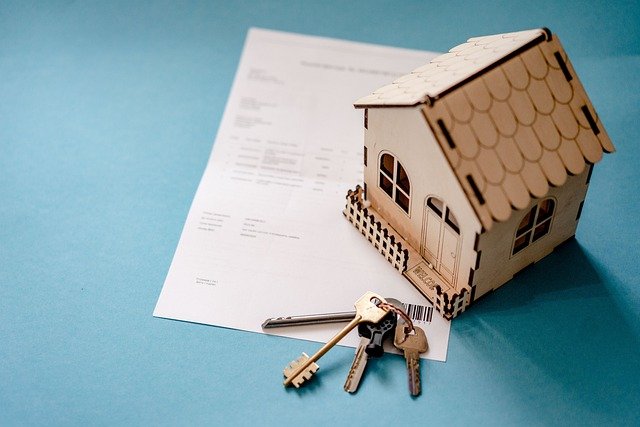Government Housing Grants for Single Mothers: Eligibility, Benefits, and Support Options in 2025
In 2025, government housing grants and assistance programs may help single mothers access affordable and stable housing. These initiatives are designed to support families by reducing financial pressure and improving living conditions, but availability and funding depend on eligibility criteria and location. Understanding how these programs work and what options exist can help single mothers make informed decisions when exploring housing support.

Single mothers face unique housing challenges while managing family responsibilities, employment demands, and financial constraints. Government housing grants and assistance programs exist specifically to address these challenges, providing pathways to stable, affordable housing. In 2025, several federal, state, and local initiatives continue to offer support tailored to single-parent households. This comprehensive guide explores available government housing grants, eligibility criteria, benefits, and resources to help single mothers navigate housing assistance options.
Understanding Government Housing Grant Programs in 2025
The federal government maintains several housing assistance programs administered through the Department of Housing and Urban Development (HUD) that benefit single mothers. The Housing Choice Voucher Program (Section 8) remains one of the most significant resources, providing rental assistance to low-income families. The HOME Investment Partnerships Program allocates funds to states and localities for affordable housing initiatives. Additionally, the Family Self-Sufficiency (FSS) program helps families build assets and increase earned income, while the Continuum of Care (CoC) Program addresses more urgent housing crises for those facing homelessness. In 2025, funding allocations for these programs have been adjusted to address increasing housing costs across many regions.
Eligibility Requirements for Single Mother Housing Assistance
Eligibility for housing grants typically centers on income thresholds, family size, and specific circumstances. Most programs require applicants to earn below 80% of the area median income (AMI), with priority often given to those below 50% or 30% AMI. Single mothers must provide documentation of custody arrangements and dependent children. U.S. citizenship or eligible immigration status is required for most federal programs, though some state and local initiatives may have different requirements. Credit history is generally not a determining factor for eligibility, but rental history may be considered. In 2025, many programs have implemented streamlined application processes that recognize the time constraints facing single-parent households.
Application Process for Housing Grants and Assistance
The application process begins with identifying appropriate programs through local Public Housing Authorities (PHAs) or HUD-approved housing counseling agencies. Required documentation typically includes proof of income (pay stubs, tax returns, benefit statements), identification for all household members, birth certificates for children, and documentation of single-parent status. Many agencies now offer online application options, though in-person assistance remains available. Application timelines vary significantly by program and location, with waiting lists for certain programs extending from several months to years in high-demand areas. For 2025, several jurisdictions have implemented preference categories that prioritize single-parent households with young children.
Benefits and Support Options for Single Mother Households
Housing grants provide various forms of assistance tailored to different needs. Rental assistance programs like Section 8 typically cover the difference between 30% of the household’s adjusted income and the fair market rent. Homeownership programs offer down payment assistance, below-market interest rates, or forgivable loans to help single mothers transition from renting to owning. Many comprehensive programs include wraparound services such as childcare subsidies, education grants, employment training, and financial literacy education. Some initiatives specifically target single mothers pursuing higher education or vocational training, recognizing education as a pathway to long-term economic stability.
Limitations and Funding Considerations for Housing Programs
Despite their benefits, housing assistance programs face significant limitations. Funding constraints result in long waiting lists in many areas, with some PHAs temporarily closing their waiting lists due to overwhelming demand. Geographic disparities exist in program availability and benefit levels, with rural areas often having fewer resources than urban centers. Program requirements may include ongoing income verification, housing quality standards inspections, and participation in self-sufficiency initiatives. In 2025, budget allocations have increased for some programs but remain insufficient to meet nationwide demand, with an estimated 75% of eligible households unable to receive assistance due to funding limitations.
Comparison of Major Housing Assistance Programs for Single Mothers
| Program | Assistance Type | Income Requirements | Average Wait Time | Special Features |
|---|---|---|---|---|
| Housing Choice Voucher | Rental subsidy | Below 50% AMI | 1-3 years | Portable vouchers that move with the family |
| Public Housing | Reduced rent units | Below 80% AMI | 6 months-2 years | Community-based support services |
| HOME Program | Various housing assistance | Below 60% AMI | Varies by locality | Local flexibility in program design |
| CDBG Housing | Grants/loans for repairs | Below 80% AMI | 3-6 months | Focus on health and safety improvements |
| State-Specific Programs | Varies by state | Typically below 60% AMI | 2-12 months | Often more flexible eligibility |
Prices, rates, or cost estimates mentioned in this article are based on the latest available information but may change over time. Independent research is advised before making financial decisions.
Additional Housing Resources for Single Mothers in 2025
Beyond government programs, single mothers can access complementary resources to address housing needs. Nonprofit organizations like Habitat for Humanity offer homeownership opportunities through sweat equity programs. Faith-based organizations frequently provide emergency housing assistance and transitional housing options. Community action agencies offer utility assistance, weatherization services, and emergency rental help. Legal aid services can assist with housing discrimination cases, eviction prevention, and landlord-tenant disputes. For 2025, several new public-private partnerships have emerged, creating innovative housing solutions specifically designed for single-parent households, including co-housing communities and employer-assisted housing programs.
Securing stable, affordable housing remains a significant challenge for many single mothers, but understanding available government programs is the first step toward accessing crucial support. By researching eligibility requirements, preparing necessary documentation, and connecting with local housing authorities, single mothers can navigate the complex landscape of housing assistance. While funding limitations and waiting periods present obstacles, the combined resources of federal, state, local, and nonprofit programs offer meaningful pathways to housing stability for single-mother households in 2025.




